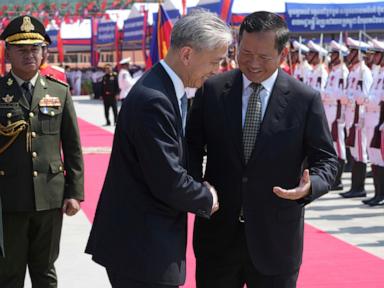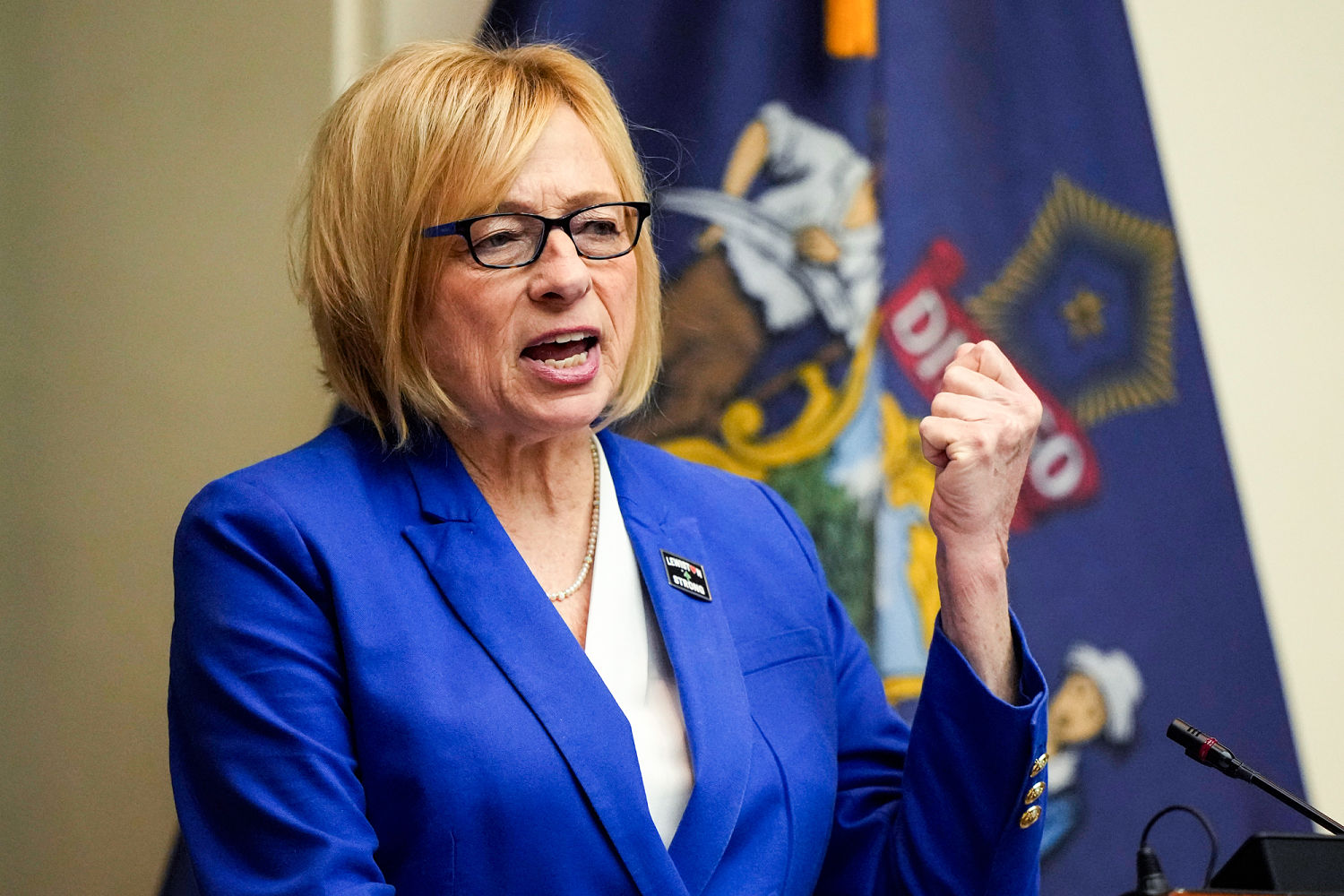The Trump administration is torn over how to respond to Russia’s military presence in Syria and whether to ask the new transitional government to oust Russian forces from a naval and air base in the country.
U.S. sanctions on Syria provide Washington with enormous leverage to influence the new government headed by Ahmed al-Sharaa, a former U.S.-designated terrorist who led the overthrow of longtime dictator Bashar Assad.
Last month, Trump officials provided al-Sharaa’s representatives with a list of conditions for eventual sanctions relief. But ousting Russia’s military presence in the country was not included, according to two people familiar with the situation.
“There’s a huge internal debate within the administration about what position to take on the Russian base,” said one person familiar with the matter. “This was debated within the State Department and White House, there was a push by some in the administration to remove the Russian base.”
The person added that ousting Russian forces is currently “not being demanded of the Syrians to remove sanctions.”
Russia's involvement in Syria is another potential flashpoint as Trump tries to bring Moscow to the table on a ceasefire with Ukraine.
In a call with Russian President Vladimir Putin on March 18 about Ukraine, Trump spoke broadly about the Middle East “as a region of potential cooperation to prevent future conflicts.”
But Trump has grown increasingly frustrated with Putin over his refusal to halt fighting with Kyiv, and threatened sanctions.
Russia hawks in Congress say the removal of Russian military assets in Syria is an easy ask of al-Sharaa that would deliver major geopolitical wins for the U.S. in the region.
“I’m hopeful that every effort is going to be made to remove the Russian navy base of Tartus and equally to remove the air base that the Russians have in Syria,” Rep. Joe Wilson (R-S.C.) told The Hill.
Sen. Jim Risch (R-Idaho), chairman of the Senate Foreign Relations Committee, took a more cautious tack, saying Damascus’s turn away from Russia and its partners — China, Iran and North Korea — would benefit the U.S.
"If we want it and they want it, we ought to try to make it happen," he said.
Risch said he's still in a "wait and see" mode with whether the new authorities in Damascus are to be trusted, but said some sanctions relief is possible.
“I think what we should do, is do some suspension of some of the sanctions — so that they can start rebuilding their country. I think we should give them that opportunity, but I'm still in a wait-and-see mode to see where this country is going,” he said.
Rep. Pat Fallon (R-Texas), a member of the House Select Committee on Intelligence and Armed Services Committee, called last month for Russia to be kicked out of Syria.
“If we want lasting peace in Ukraine, we can't allow Russia to capitalize on the chaos in Syria and maintain control of its airbases,” he posted on the social platform X. “Russia's presence in Syria benefits Iran's terrorist proxies, who seek to destabilize the region and undermine U.S. national security interests.”
There’s little love for Russia among the Syrian people, al-Sharaa, or the Islamist group Hayat Tahrir al-Sham (HTS), which led the insurgents who overthrew Assad. Russia’s intervention in Syria in 2015 shored up Assad’s dwindling power against the Syrian rebels, with air and ground forces carrying out widespread attacks that spurred allegations of war crimes.
“During the onslaught on Aleppo in 2015 to the end of 2016, Russia dropped tens of thousands of tons of munitions on ...













